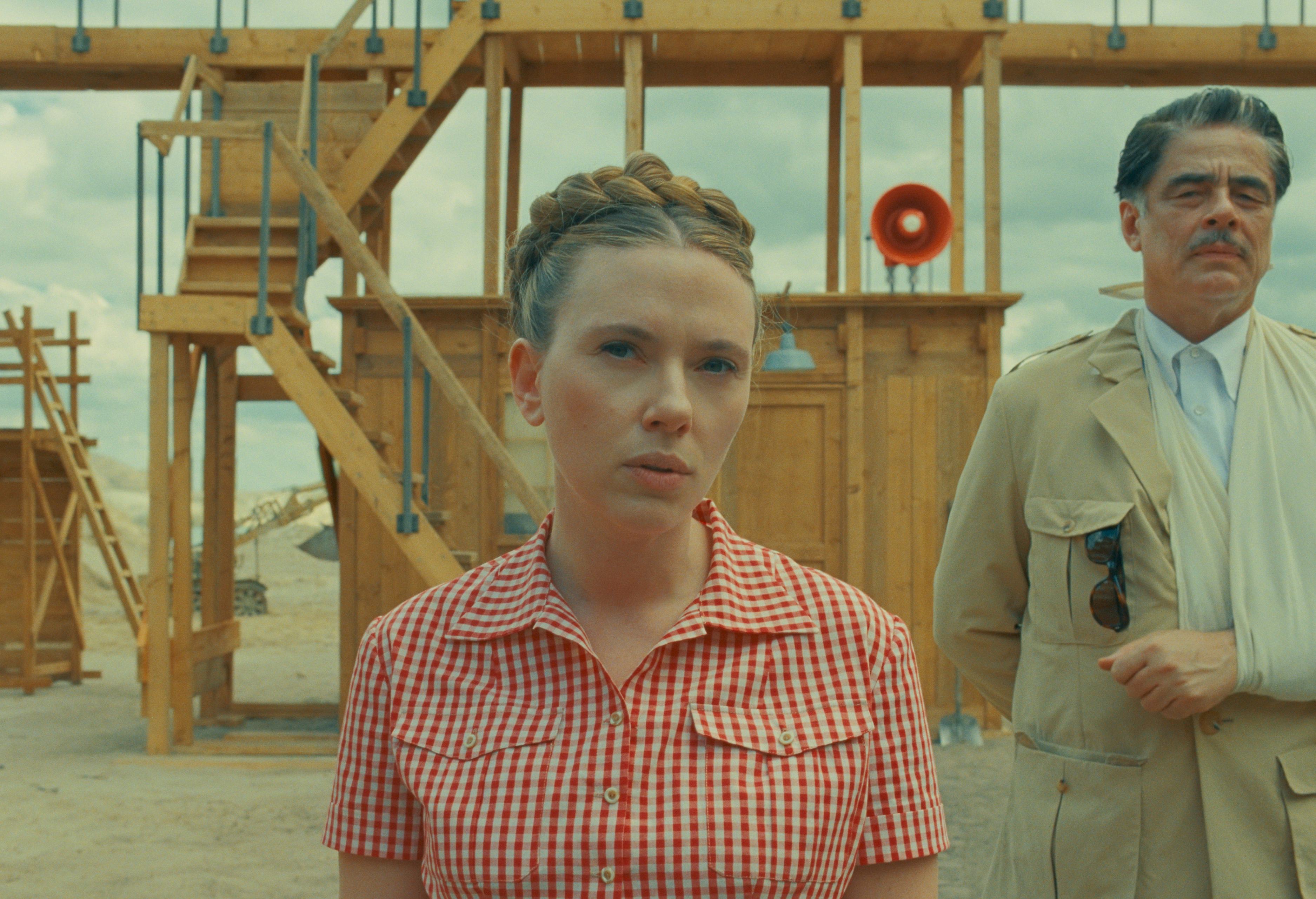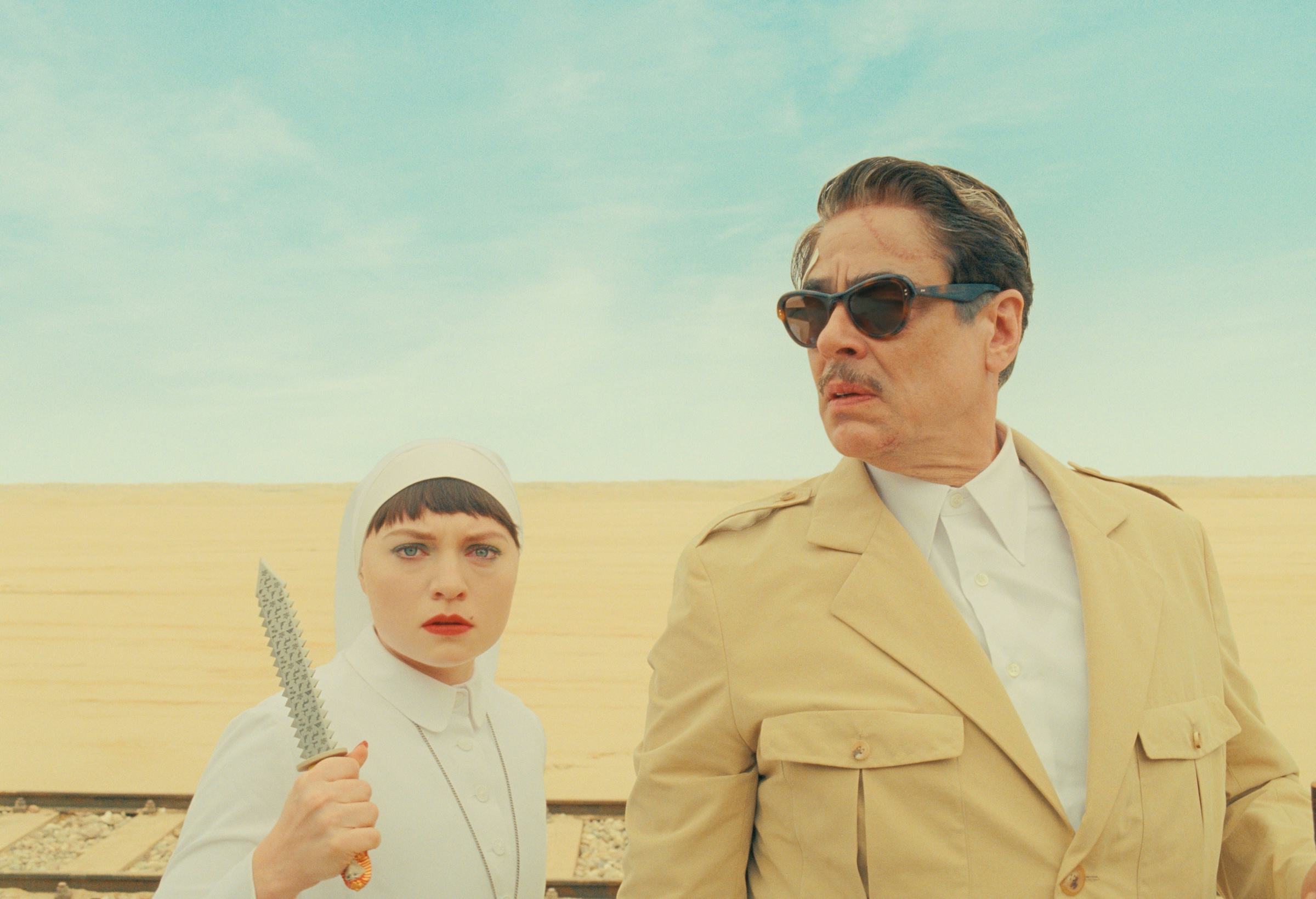
When is a Wes Anderson movie just a movie? For the first time since perhaps his very first film, Bottle Rocket, Anderson has produced a film that is, seemingly, preoccupied with intricate and complex plot details. But the key to loving The Phoenician Scheme is, paradoxically, to think as little as possible about the scheme itself, and instead, allow the incisive dialogue and provocative characters to take you into a kind of cinematic comedy-thriller that makes you uncertain just how much you should really be laughing.
The Phoenician Scheme has just quietly hit Peacock, and if you missed it in theaters, it's worth streaming for one reason alone: There’s not a single movie in 2025 that looks or sounds like this one.
Ruining the plot of The Phoenician Scheme is actually hard because aspects of the story and the stakes are somewhat intentionally opaque. In an early scene, criminal mastermind and business tycoon Zsa-Zsa Korda (Benicio del Toro) explains various aspects of his latest scheme to his daughter, Liesl (Mia Threapleton), by pointing at different shoeboxes all with cryptic labels. If you love this scene and its eccentric, meandering structure, you’ll love the movie. If you’re frustrated that the plot of the movie is being described or foreshadowed by closed shoeboxes, this is not the film for you.
Instead, for all the obsession with talking about Anderson’s very specific visual style (which, really, is perhaps in its third iteration), what is under-discussed about all of his films is his wonderfully unique, compact, and multitudinous dialogue. To put it another way, just listening to characters converse in The Phoenician Scheme is a pleasure, even if the unfolding plot details are less than clear.
In other words, yes, The Phoenician Scheme does reveal what’s in all of those shoeboxes, and will reward you, somewhat, for paying close attention. But you’re almost better off not caring about what Zsa-Zsa is up to, but instead, how he, and others, are describing what they’re thinking and feeling. A perfect microcosm for the joy of The Phoenician Scheme can be found in a moment in which Liesl asks for an exact amount of money to determine just how much is on the line for the titular scheme. “Everything we got, our entire fortune,” Zsa-Zsa replies, and then adds, “Plus, a little bit more.”

If all great dialogue in fiction is supposed to both advance the plot and reveal character at the same time, this little aside is a masterclass. Zsa-Zsa reveals big stakes, but lies a little bit about it, too. Plus, he also reveals a contradiction and a further secret. It’s funny, honest, and a bit of a lie all at the same time. While the film never approaches the emotional and logistical acrobatics of Anderson’s more recent under-the-radar masterpiece, The Wonderful Story of Henry Sugar, he does tell a somewhat original story, using motifs that he returns to often. Can the world really handle another damaged and deranged father-figure in the Wes Anderson mold? Benicio del Toro’s performance argues that yes, this is a trope that Anderson can reinvent in new ways, this time with more darkness than camp.
In fact, because so much of The Phoenician Scheme is quite literally about dying, it approaches a philosophical myth, and is only pretending to be a heist thriller. If one of Ian Fleming’s 1950s James Bond novels was about Bond in purgatory, and featured art deco illustrations in between the clipped prose, that would be The Phoenician Scheme. This is a strange way of saying that The Phoenician Scheme is like many of Anderson’s other movies insofar as it's a mashup, but it's a tonal mashup that isn’t quite like anything he’s ever done before.







